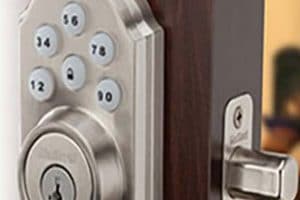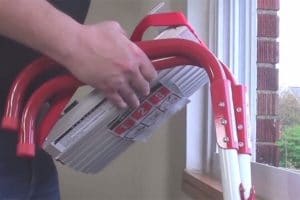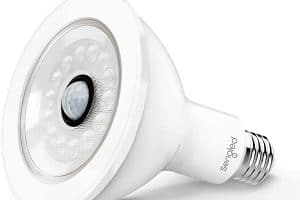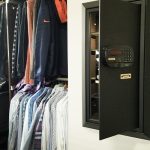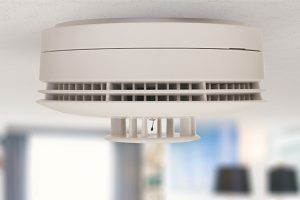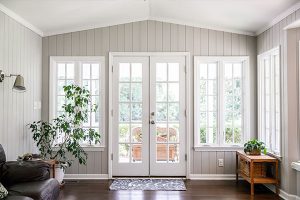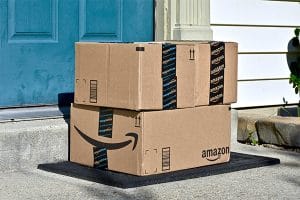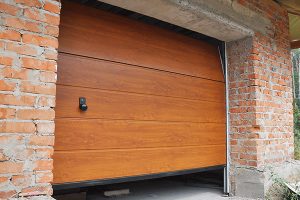Your cart is currently empty!
Category: Homeowner Tips
-

Don’t Miss These Essential Home Safety Items
Be prepared for any emergency with these must-have items in your home.
Smart-lock
Replace the ordinary deadbolt on your door with a smart lock to access your home using its app to lock, unlock, and create other settings.
Portable first-aid kit
Portable so it’s easy to carry around the house.
Fire safety ladder
Store the ladder in an accessible location, preferably near a window, so you or your family members will be able to quickly and safely escape the house in the event of fire.
Motion activated lights
Smart-lights activate when motion is detected, deterring those who would rather do their bad deeds in the dark. Couple with security cameras for even greater effect.
Fire-proof safe
A safe can keep these possessions from being stolen in the event of a break-in. Keep a portable safe well hidden.
Fire extinguisher
A fire extinguisher is must-have safety essential could save your life. Place it in an easily accessible area so you can quickly and effectively put out a fire.
Fire and Carbon monoxide detectors
Keep your family safe with monitored smoke detectors and CO detectors. Add a monitored smoke detector to your security system for no extra monthly cost with EMC Security.
Security system or cameras
Homes without a security system are 3 times as likely to get broken into. Most burglars surveyed said they’d pass by a home with a visible security camera as well. Security systems are very affordable from just $179 – check out EMC Security’s options here.
-
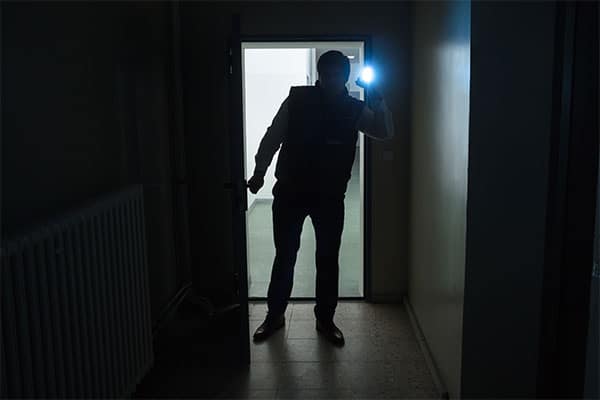
8 Ways You May be Inviting Intruders Into Your Home
According to the FBI, the average financial loss from a burglary is more than $2,000
Despite taking every precaution, some homeowners unwittingly attract burglars to their property. Here’s how.
Your home is dark
Criminals steer clear of a well-illuminated house. Leave on porch lights to discourage burglars from approaching entry doors, and install bright motion-detector lights around your home’s perimeter to dissuade them from searching for an open window.
No cars in driveway
Criminals prefer breaking into vacant houses, so empty driveways are an open invitation for a robbery. Ask a neighbor to park in your driveway when you go on vacation—especially if you’ll be gone for more than a few days.
Unlocked windows
After checking the front door, thieves often check for unlocked windows, which serve as an easy entry point. Before you leave the house and before you go to bed, close and lock all windows on the ground floor as well as second-floor windows that could be relatively easily accessed. Also, close the drapes so would-be intruders can’t scope out the contents of your interior, as any expensive object in plain sight may tempt them.
Unkempt Yard
An overgrown lawn and poorly maintained landscaping indicate that residents may be away on an extended vacation. Additionally, overgrown bushes can offer protective cover for intruders as they break into your home.
Oversharing
Criminals scour social media for future targets. Posting your travel plans on Facebook or Instagram is akin to putting a big sign in your front yard announcing that you’ll be gone.
Stuffing the mail box
Ask a neighbor or friend to stop by your home daily to pick up mail, newspapers and packages. This type of clutter is a dead giveaway that you’re gone.
Leaving the garage door open
In addition to risking your belongings being taken from your garage, chances of the door to the house being unlocked are pretty good.
No visible security system or cameras
Homes without a security system are 3 times as likely to get broken into. Most burglars surveyed said they’d pass by a home with a visible security camera as well. Security systems are very affordable from just $179 – check out EMC Security’s options here.
-

What to do if your package is stolen
Many of us have felt the frustration of expecting a package delivery and it not arriving on time. Worse yet, an increasing number of people have received a notice of delivery but the package isn’t there. Below are tips on what to do if this happens to you.
Check again. Check every entrance of your home and spots the delivery driver could have left it, like the bushes around the front porch, the back porch, the garage, or between the screen door and front door. We’ve even seen packages sitting in the bushes adjacent to the mailbox.
Contact the delivery company. Have your tracking number and order details handy. If they can validate that the package was indeed delivered, ask if they can verify the location. UPS will often upload an image of the package (and location) as proof of delivery. Ask about the company policy on stolen packages. If the theft was due to their mistake, they might be able to help you.
Contact the retailer. Get in touch with customer service and have your order and tracking number ready. The customer service rep can tell you the store or company policy on stolen items.
File a report. Report your missing package to the police and the Postal Inspection Service if it was shipped via the USPS. The more agencies helping you track down your stolen package, the better.
Make it Easier:
There’s a reason why doorbell cameras are the most popular home security cameras. They work. A doorbell camera records all activity from your front door – to an optional range of your choice. Some can view road traffic and others choose to only see what happens within a few feet of the camera. The best cameras have an intercom feature that lets you talk to anyone on your doorstep. EMC Security’s doorbell camera is just $149.
For extra security, outdoor cameras can be placed around the perimeter of your home starting at $99 each.
-

Georgia School Bus Law – Reminder
Many school systems have opted for online learning this fall. But there are also many districts that have offered in-school learning – so buses will be on the roads once again.
It’s important for people to realize how dangerous it can be at bus stops, which is why drivers have a responsibility to make sure students can leave those bus stops safely.
According to law, vehicles traveling in both directions must stop when a school bus is stopped on a road with its lights on and sign out. This applies to two-lane roads, four-lane roads, and roads with a turning lane. The only time you do not have to stop is if there is a median in the road, separating you and the bus. These sections of roadway are usually divided by a grassy area, a paved area, or a concrete wall.
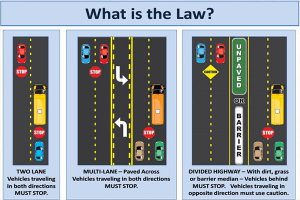
Penalties for Breaking the Law
If you are caught passing a school bus that is stopped, you could be fined up to $1,000 and risk getting six points on your driver’s license. As such, remember, if you see a school bus stopping and the red lights are on, you need to stop unless it’s a road with a median.
According to a school official, bus drivers try to avoid bus stops where students have to cross the street, but it does still happen and sometimes students cross when they aren’t supposed to.
Sometimes, it’s possible that a child might get confused, and not having traffic stopped in all directions could be catastrophic, which is why it’s important that drivers educate themselves on the new law and the cautions that come with driving on the roadways during the school season.
Did you know that EMC Security protects more kids and staff at school in Georgia than any other company? That’s over 358,000 students and staff! Learn how we can keep you and your family safe at home too.
-

Home Burglary Prevention Checklist
The following checklist was designed to help you improve the overall security and safety of your home.
The main purpose of any home security inspection is to help you familiarize yourself with the features in your home or daily routines of your family, which might make it vulnerable to burglary.While we believe everyone should have a security system in their home, there are things you can do to deter intruders and keep your home as safe as it can be.Your security inspection should begin at your front
door, and cover all of your home’s doors, windows, locks, lightsand landscaping. If there are any questions on the checklist, to each you’ve answered “No”, you should correct the current condition to help ensure the safety and protection of your family and home.Doors
- Are the doors of the home metal or solid wood construction?
- Do your entry doors provide a wide-angle view?
- Are all door locks sturdy and in good condition?
- Are there any windows within 40 inches of the door locks?
- Can the locking mechanism be reached through a mail
slot, or pet entrance? - Are door hinges protected from removal from the outside?
- Can all your doors be securely locked?
- Are entry points unobstructed by shrubbery or
other decor for maximum visibility? - Do your sliding glass doors lift out of the track?
- Are door frames strong enough and tight enough to prevent forcing or spreading?
- Is there a screen or storm door with an adequate lock?
- Are all entrances lighted with at least a 40-watt light?
Windows
- Are all windows equipped with auxiliary key locks or are they pinned?
- Are your window locks properly and securely mounted?
- Do you keep your windows locked when shut?
- Do you use locks that will allow you to lock partially opened windows?
- Are you as careful to secure your
second floor windows, as you are to secure those on the first floor? - Do windows have screens or storm windows that lock from the inside?
- Do windows that open into hazardous areas have security screens or grills?
- Are exterior areas of windows free from concealing structure or landscaping
- Is the exterior adequately lighted at all window areas?
- Are ladders kept where they are not accessible?
Entrances from Garage and Basement
- Are all entrances to the living quarters from a garage or basement of metal or solid wood construction?
- Does the door from the garage to the living quarters have locks adequate for exterior entrances?
- Does the door from the basement to the living quarters have an adequate lock operated from the living quarter’s side?
Basement Doors and Windows
- Is there a door from the outside to the basement?
- If so, is that door adequately secure for an exterior door?
- Is the outside basement entrance lighted by an exterior light of at least 40 watts?
- Is the outside basement door concealed from the street or neighbors?
- Are all basement windows adequately secured against entrance?
Garage Doors and Windows
- Are garage doors equipped with a working locking device?
- Is the garage door closed and secured at all times?
- Are the garage windows secured adequately for ground floor windows?
- Is the entrance to the garage as secure as other entries to the house?
- Are tools and ladders stored in the garage?Are all garage doors lit on the outside by a 40-watt light or greater?
-

3 Ways to Cut Insurance Costs with Security
Many homeowners assume that living in a safe neighborhood eliminates the risk for a burglary, which is not the case. In the unfortunate event that they find their valuables stolen or damaged after a home invasion, homeowners could issue a claim against their home insurance policy — and more often than not, filing a claim results in homeowners seeing a rise in their insurance premiums.
According to the market data, there were more than 3.7 million burglaries in 2003 – 2007, the equivalent of one burglary every 8 seconds, according to alarm.org, run by the Electronic Security Association. For these reasons, homeowners should consider whether installing a home security system is worth the investment, not only to protect their family and
possessions, but also to help possibly lower the cost of insurance.Here are three ways to reduce insurance costs with a security system:
1. Boost Home Safety
Insurers may provide a discount on insurance premiums for homeowners who have a home security system, which can help increase the overall safety of the home. Research performed by alarm.org stated that 90 percent of convicted burglars said they would keep away from homes with home security systems. The assumed decrease in incidents could help insurance companies perceive homeowners as less of a risk, and therefore qualify them for discounts.
2. Lower Costs on Home Policy Premiums
Homeowners could see their insurance premiums decline by up to about 20 percent with the installation of a well-rounded home security system, according to researchers. Not only can having a comprehensive security system help reduce insurance costs
, homeowners can also save money on would-be damages in the event that a burglary would occur without a security system.3. Minimize Risk of Cost Hikes
To steer clear higher insurance premiums, homeowners should carefully review their policies. Home insurance companies may opt to hike insurance policy premiums should a burglary occurs, so it’s a good idea to know what factors could bring about unwanted changes to the cost of your home insurance.
-

Outdoor Burning in Georgia.
The Environmental Protection Division of the Georgia Department of Natural Resourcesrestricts open burning from May through September of each year.
Why?
During the warm weather seasons, the particulates in an open-air fire become more significant contributors to unhealthy levels of ozone. By banning open fires during those months in heavily populated Atlanta and the majority of its surrounding counties, there is a reduction in the
amount of pollutants.Once the weather has turned cooler, certain types of outdoor burning
is once again permitted in north Georgia counties. Georgia residents that want to do an open burn from October through April 2018, need to check with their county ordinances on outdoor burning.The following types of burning can be done without a permit:
- Leaves, limbs, and natural vegetation
- Fires that provide warmth
- Fires that cook food
- Recreational fires in an outdoor fireplace
Always check with your county before you do any sort of large surface, outdoor burning! If you need a permit, visit http://www.gfc.state.ga.us/online-permits/index.cfm.
General safety tips for any type of open burning:
- Gather the necessary supplies for controlling the fire—a rake, a shovel and a water hose connected to a good water source.
- Find a burn spot that can be easily controlled in a level area, away from any buildings.
- Start small.
- Make sure all the materials being burned are natural. No man-made products (such as processed lumber) that might contain chemicals that
ignites or gives off noxious fumes. - No burning within 20 feet of flammable or combustible materials.
- Never leave an outdoor fire burning unattended.
An outdoor fire burning out of control can threaten the safety of your home and family. And in Georgia, illegal outdoor burning can get you in a world of trouble. Don’t play with fire—play it safe!
Check out ourwebsite for information about fire protectioninside your home! You can add monitoring for fire, smoke, and heat at no additional monthly cost.
-

How a Social Media Status Update Can Cost You Thousands of Dollars
There’s almost nothing better than being on summer vacation.
When you’re having fun, it’s so tempting to share all the excitement on social media. However, you may want to read this before you update your Facebook status, check in on Foursquare or snap and post that beachfront selfie. Burglars that are intent on stealing your valuables will utilize your social media posts to determine if you’re at home.
78% of Burglars Use Social Media to Target Homes
Statistics show, 78% of home burglars use social media platforms to select the homes they intend to rob. Location-based platforms such as Facebook or Twitter make their information especially valuable to criminals, who are always looking for the easiest access possible to your home. And what could be easier than an unoccupied home? If the average home robbery takes 10 minutes, imagine the kind of access you’re offering a burglar when you announce you’re taking off on a 14-day cruise!
In addition to the risk of being robbed, some insurers in the United States are now denying claims for home break-ins when they discover that the policyholder posted on Facebook, Twitter or other social media platforms while he or she was away on a trip.
How Can I Avoid being targeted by a Facebook-surfing Thief?
Hold off on posting while you’re away, and save all those great pics for an online photo album AFTER you return from your trip. Don’t use the check-in feature on any of your social media. If you’re traveling with family, set guidelines for posting to social media that apply to everyone.
Above all, make sure to ARM YOUR ALARM on your security system before you set off on your road trip.
EMC Security wants you to have a fun-and SAFE—vacation!
We’re home when you’re not, providing 24/7 monitoring for intrusion, fire, and smoke. If you want the alarm monitoring company with one of the fastest response times in Georgia to protect your home, give us a call at 770-963-0305 today or visit our website.
-

Spring Cleaning Tips With Safety In Mind
It’s that time of year again.
Most of us are “social distancing” at home and have some time on our hands. So we don’t really have many excuses not to spring clean, do we?
The fact is, taking the time to thoroughly clean and inspect your home – especially with these 6 pointers – you’ll have a shiny, fresh, and SAFE place to enjoy during Georgia’s beautiful spring and summer seasons.
1. Be aware of your security system when you’re redecorating.
Does your spring to-do list include a new big-screen TV or furniture purchase? Re-arranging or changing furniture and appliances may cause a change in the efficiency of your security system. Make sure that when you re-decorate, your security cameras are not blocked and your motion detector sensors are clear.
2. Check your window locks.
Spring is a good time to clean the interior and exterior glass—it’s safer when you can see more clearly! It’s also the perfect time to open and close every window and make sure the locks and seals are properly securing the window. If any of the locks seem loose, tighten or replace them. It’s also a good time to install inexpensive window pins. They’re available at any home improvement store, and are easy to operate—just pull the pin out to unlock and open the window.
The next 4 tips are to prevent a fire in the home. EMC Security will monitor for fire for no additional monthly cost. You will have to install smoke detectors specific for monitoring but it’s well worth the small investment.
3. Check batteries on smoke detectors and carbon monoxide detectors.
If you read this tip a lot when you’re scanning articles about home security and maintenance, it’s for a good reason. These detectors could mean the difference between life and death. According to the Consumer Products Safety Division, two-thirds of all home fires occurred in residences without working smoke detectors. It’s also a good time to test your smoke alarms.
4. Clean your light fixtures.
Not only will your home look brighter, but you’ll also see better—and that’s a big safety plus! Dust those hard-to-reach chandeliers and ceiling fans thoroughly. An accumulation of dust and dirt can cause operating issues, which could lead to big trouble if there’s a short-circuit in the wiring. One spark could start a fire!
5. Clean out your fireplace.
If you’ve got a wood-burning fireplace in your home, it’s time to call in a chimney expert to make sure the flue is clear and there’s no creosote buildup. Discard any ash, clean the grate and surrounding areas, and close the flue. A clean fireplace will freshen the air in your home.
6. Clean around your refrigerator and washer-dryer.
Spring is a great time to pull your fridge out from the wall and give the floor behind it and around it a good cleaning. Sweep, wipe and mop as much as you can. Take a brush/duster specifically designed to clean the coils in major appliances and give it a good deep-cleaning. The amount of dust that gets into the bottom of a refrigerator is astounding. And when you’re doing the same to your washer-dryer combo, use that brush to clean out the dryer vent. Make sure you’re in the habit of cleaning your lint screen after every time you run your dryer. Remember, anywhere you’ve got dust and major electrical equipment, you’ve got the potential for a fire.
-

Dog vs Security System
One of the reasons why people think they don’t need or want a security system is because they have a dog.
It’s hard to defend against a beloved dog, especially one that looks like the one in the photo above. But there are many benefits to a security system that you just don’t get with a dog.
Dogs have amazing senses, with their sharp ears and superior scents-ability. Much like a security system, a dog can alert you right away to an intruder on your property. The downside of this is, to your dog, many everyday visitors count as intruders.
A smart home security system does it better. Like a dog, it’s proactive when an intruder is detected—but it’s far better at discerning a genuine intruder from a harmless everyday event, thanks to its use of intelligence from all around the home. Equally important, if there’s a break-in, a security system can alert a 24-7 monitoring station for professional help.
Burglars avoid homes with security systems. In fact, 60% will go elsewhere if they see one. Add a smart security camera and you have a formidable deterrent.
Of course, most burglars don’t want to meet your dog, either. Should they spot dog toys in the yard or hear muffled barking, many will move along.
Deterrence aside, though, there are some things a dog can’t help with. For example, 1/3 of all burglaries are cases of unlawful entry—a burglar entering through an unlocked door or window. With proactive reminders and remote locking, security system powered with home automation can save the day when you’re in a rush and forget to secure the house.
It’s not unknown for a burglar to arrive with food to distract a dog, for example. While a specially trained dog may hold his ground, most dogs will scamper off down the basement stairs after their prize.
Meanwhile, a lawbreaker will need more than a steak to defeat a smart home security system. Even if they take a hammer to your security panel, your security technology can still alert your home’s 24-7 monitoring station.
Want to improve your canine-based home security by installing a smart home security system?
Contact EMC Security today at 770-963-0305 or visit our website.



